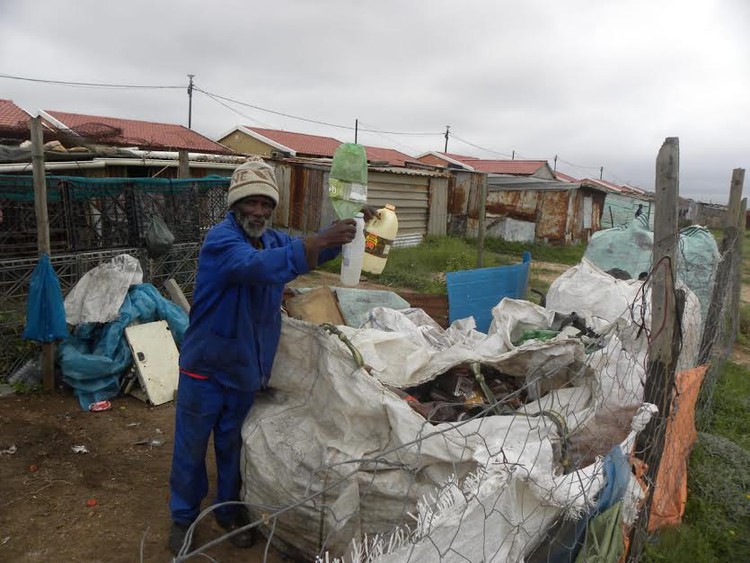
Pensioner Helps Himself and his Neighbourhood by Recycling from Illegal Dumps
Ntsokolo Konzapi, who is 72, survives by supplementing his pension by collecting and selling discarded plastic containers to recyclers in Port Elizabeth. He scratches through illegal dumping sites around Motherwell, mostly to collect 2-litre containers for cooking oil, milk, water and soft drinks. He packs them into sacks, carrying one on his head and dragging […]

Ntsokolo Konzapi, who is 72, survives by supplementing his pension by collecting and selling discarded plastic containers to recyclers in Port Elizabeth.

He scratches through illegal dumping sites around Motherwell, mostly to collect 2-litre containers for cooking oil, milk, water and soft drinks. He packs them into sacks, carrying one on his head and dragging the other.
“People dump carcasses of dead dogs, cats, rats and skins of cattle and sheep on dumping sites. They produce a bad stench that is dangerous to our health,” says Konzapi.
Konzapi lives with his wife and grandson in a RDP house where he stores his recyclables in bales in the backyard. He wears a mask when collecting and wipes the containers down with a wet cloth before storing them.
He retired in 2014 after working for many years on a mine in the Free State as a driver of heavy-duty earthmoving vehicles.
Konzapi said he started collecting and selling plastic bottles in 2016 when he realised the township was drowning in garbage.
“I sell the containers to a recycling company in Markman industrial area. I normally fill between ten to fifteen bales per fortnight making an average of R1,500 [per fortnight]. The company collects the containers from my house,” says Konzapi.
He said there is much competition because so many people are unemployed. He has the advantage of living in central Motherwell, but he still wakes up early before the municipal garbage collectors begin work at 8 am or residents burn the piles of rubbish.
“People throw plastics everywhere, clogging stormwater drains. The plastic eventually ends up washed away to the sea, killing fish and other marine creatures,” says Kozapi.
“The illegal dumping sites are a nuisance to our health and to the environment. The dumps should be cleared regularly,” he says.
